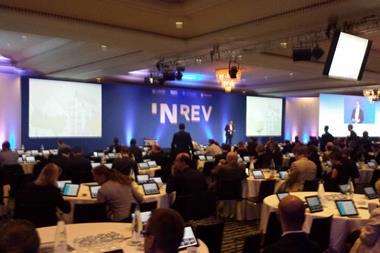Investors will commit a minimum of €48bn to global real estate this year, according to research by INREV, ANREV and PREA.
The sector is set for an increase of almost 13% compared with last year’s €42.5bn, the associations’ joint global Investment Intentions Survey found.
Allocations to real estate are expected to remain high but stable.
The average global investor is targeting an overall allocation of 10.3% over the next two years – 90 basis points above the current average allocation of 9.4%.
European investors are targeting real estate allocations of 11.4%, while Asia Pacific investors are targeting 9.8% and investors in North America 9%.
INREV, the real estate fund association for Europe, has been carrying out the survey since 2007 but in 2014 teamed up with ANREV and PREA – its counterparts in Asia and the US, respectively – to provide a more global perspective.
The highest target allocations are likely to come from pension funds at 11%, nearly double that targeted by insurance companies (6.9%).
More than half (53.3%) of all investors expect to increase their allocations to real estate over the next two years.
Approximately four-fifths of the total capital intended for real estate in 2016 is expected to come from investors in Europe and North America, with the final one-fifth being attributed to investors in the Asia Pacific.
Investors indicated that the lion’s share of this money (41.9%) will be deployed in Europe.
Around 35.5% will flow into the US and 16.9% into the Asia Pacific, while the Americas (excluding the US) will receive 5.6%.
Germany remained the top destination for investors, with 73.5% of them intending to invest in this market in 2016.
France is in second place supported by 61.8% of investors, while 58.8% look set to invest in the UK.
No other country received more than 50% of investors’ support as a preferred destination for their capital.
However, the Netherlands (39.7%), Belgium (36.8%), Finland (33.8%), Sweden (32.4%) and Denmark (32.4%) all look set to be key destinations for investors over the coming 12 months.
The view from fund-of-fund managers is in stark contrast, with 100% putting the UK at the top of their list, leaving Germany, France and the Netherlands to share the number two slot.
Fund managers rated Germany top at 65.6%, with the UK second at 64.8% and France in third at 48.4%.
The Netherlands rose four places to the number four slot from eighth in 2015.
Conversely, Central Europe fell five places from seventh to twelfth.
Henri Vuong, INREV’s director of research, said: “Appetite for real estate seems to be as strong as ever, regardless of investor domicile. The appeal of the big European cities remains undiminished.
“Despite pricing issues in places such as London, investors clearly feel the benefit of these mature and relatively liquid markets where it is easier to invest and therefore easier to avoid cash drag.”
This year, for the first time, the survey sought feedback on the relative attractiveness of capital cities versus regional ones in the three leading countries – Germany, France and the UK.
The ‘other cities’ category was deemed less favourable than key cities such as London, Paris and Berlin.
However, the gap between Paris and the rest of France was more marked than was the case for either Germany or the UK.
Investors indicated a move in favour of value added strategies (46.8%) at the expense of core (39.4%) and opportunity (13.8%).
There are significant regional variations with value-added investments favoured most in the UK (66.7%), the Nordics (64.3%) and Germany (57.1%).
However, there is also a strong preference for core in Italy (75%), France (66.7%) and Switzerland (62.5%).
“The focus seems much more tilted toward long-term income with the stability that that implies,” said Vuong.









